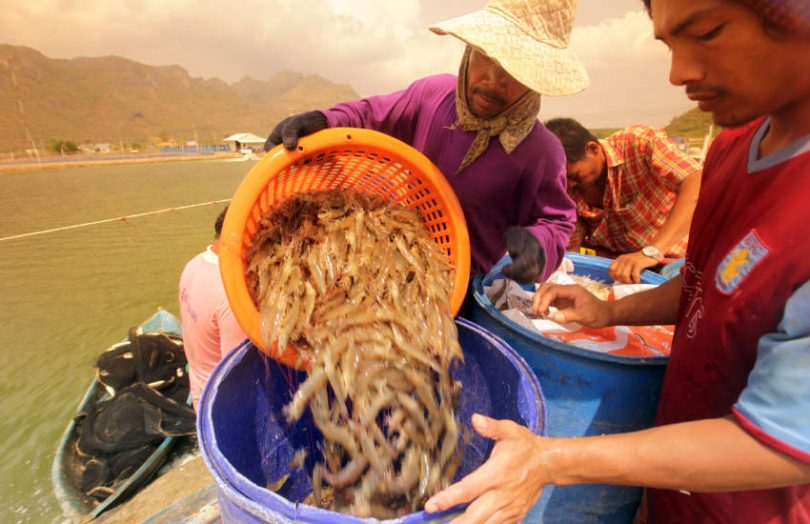Late last year, the world’s third-largest seafood producer Thai Union started piloting the use of satellite technology to monitor its shrimp farming activities. Last week, the southeast Asian company announced that it partnered with satellite analytics firm Sea Warden and blockchain traceability startup Wholechain to promote sustainable seafood production. It is hoped that this technology will provide automated, verifiable, and cost-effective Key Data Elements (KDEs) for their shrimp farms, which can be viewed and trusted by everyone in the supply chain – from producers to consumers.
In recent years, sustainability within the fishing and aquaculture industry has become increasingly important. A 2018 study found that 72% of seafood customers from 22 countries believe that to save the ocean, we have to consume seafood only from sustainable sources. The impact of unsustainable fishing on oceans and sea life is vast, and companies like Thai Union are being driven to consider the impacts of their activities.
The technology provided by Wholechain and Sea Warden aims to provide sustainable and traceable solutions so that consumers can make more responsible purchasing decisions and producers can monitor the health and environmental impacts of their products. The satellite data collected by Sea Warden generates KDEs, and the integration of Wholechain allows the insights from these KDEs to be stored on the blockchain enabling reporting along Thai Union’s supply chains.
“Satellite-derived KDE’s are a simple and independent way for retailers, certifiers, and processors to provide greater farm-level transparency. Satellite data maximizes investments into traceability systems like Wholechain’s blockchain technology to more effectively reduce risk and increase confidence across the whole supply chain”, said Zack Dinh, co-founder of Sea Warden.
Wholechain is a food traceability system that allows producers to digitize data about their products at the point of harvest and provides trust and transparency throughout the supply chain. This is in part due to the immutability of the Envisible blockchain solution based on Mastercard’s proprietary blockchain platform. Wholechain has also been implemented by supermarket chain Food City, to provide traceability in its seafood inventory, as well as in the supply chain tracking of vanilla by beauty retailer Estee Lauder.






